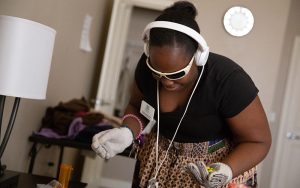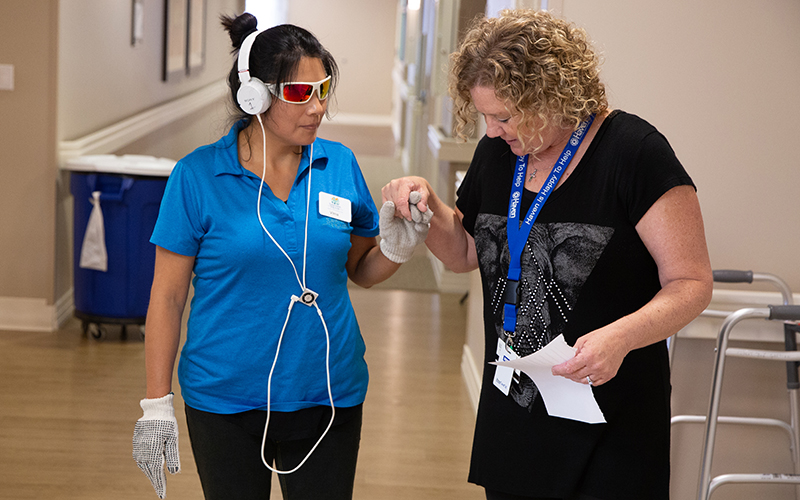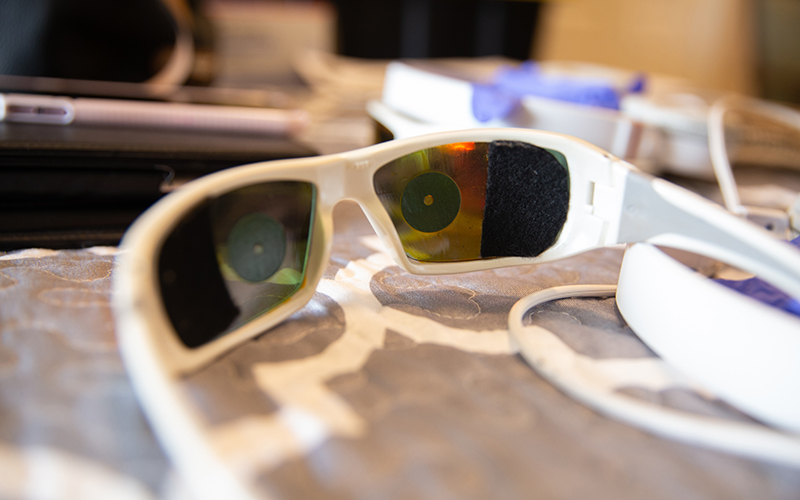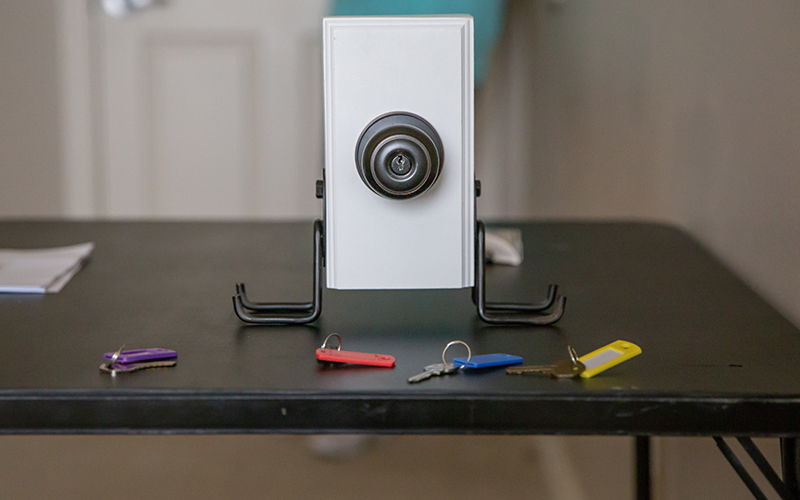GILBERT – Vilma Bose places headphones over her ears and is greeted by the sounds of droning conversation, a fire engine and a door slamming.
Next, she’s escorted to a dimly lit room and given a list of tasks to complete within five minutes. Find the white shirt, and put it on. Organize the pills by color. Pull all the threes out of a deck of cards. Bose has a hard time hearing the instructions, which aren’t repeated.
It’s all part of a simulation for staff members at Savanna House Assisted Living and Memory Care that mimics the effects of dementia, as well as other conditions common among older Americans.
“I experienced difficulty understanding and finding things,” Bose, a caregiver at Savanna House, said after the demonstration. “It’s hard to put it together.”
The simulation, conducted by representatives of Haven Behavioral Hospital of Phoenix, is designed to allow caregivers and others who interact with dementia patients to better understand the confusion they can encounter in their day to day lives, hospital liaison Debi Elder said.
“What that shows people is someone with dementia doesn’t necessarily understand what all those sounds are,” she said.
In addition to simulating the confusion dementia can cause, the demonstration tries to replicate symptoms of other diseases common among seniors. Participants wear altered sunglasses to simulate macular degeneration, bumpy insoles to mimic peripheral neuropathy and thick gloves to simulate loss of motor skills, adding layers of challenge.
“A lot of times you’ll find that someone with dementia also has one of these other things,” Elder said.

Kaerie Carrigan, memory-care program director at Savanna House, looks for a pill she dropped during a dementia simulation. One of the simulation’s challenges involved sorting colored pills into corresponding boxes. (Photo by Nick Serpa/Cronkite News)
Participants have to complete a number of tasks that are made more difficult due to the sensory confusion they’re experiencing. The combination of obstructed vision, background noise, foot pain and loss of hearing mean many people aren’t able to complete all the tasks.
When the demonstration ends, participants fill out a brief survey asking what they experienced, what they learned and how well they feel they understand the challenges faced by sufferers of dementia, which is an umbrella term for a variety of symptoms associated with declines in memory and cognitive abilities that are severe enough to interfere with daily activities. Alzheimer’s disease is the most common form of dementia.
Of course, the simulation is far from comprehensive – there are many aspects of dementia that can’t be simulated, Elder said.
“People will talk about the fear … of being afraid, of not knowing where they are, of not recognizing their caregivers,” she said. “We can’t simulate that.”
Kaerie Carrigan, director of the memory-care program at Savanna House in Gilbert, also participated in the simulation. Although it wasn’t her first time in such a demonstration, she said, she still had difficulties with some of the challenges.
Although truly simulating a disease as complex and individual as dementia is next to impossible, Carrigan says, experiences such as the simulation can still be valuable.
“You can always say what they’re going through, but it’s different when you experience it,” she said. “I think this experience kind of brings a light to that.”
Sign up for CRONKITE DAILY to catch up on the latest news.


